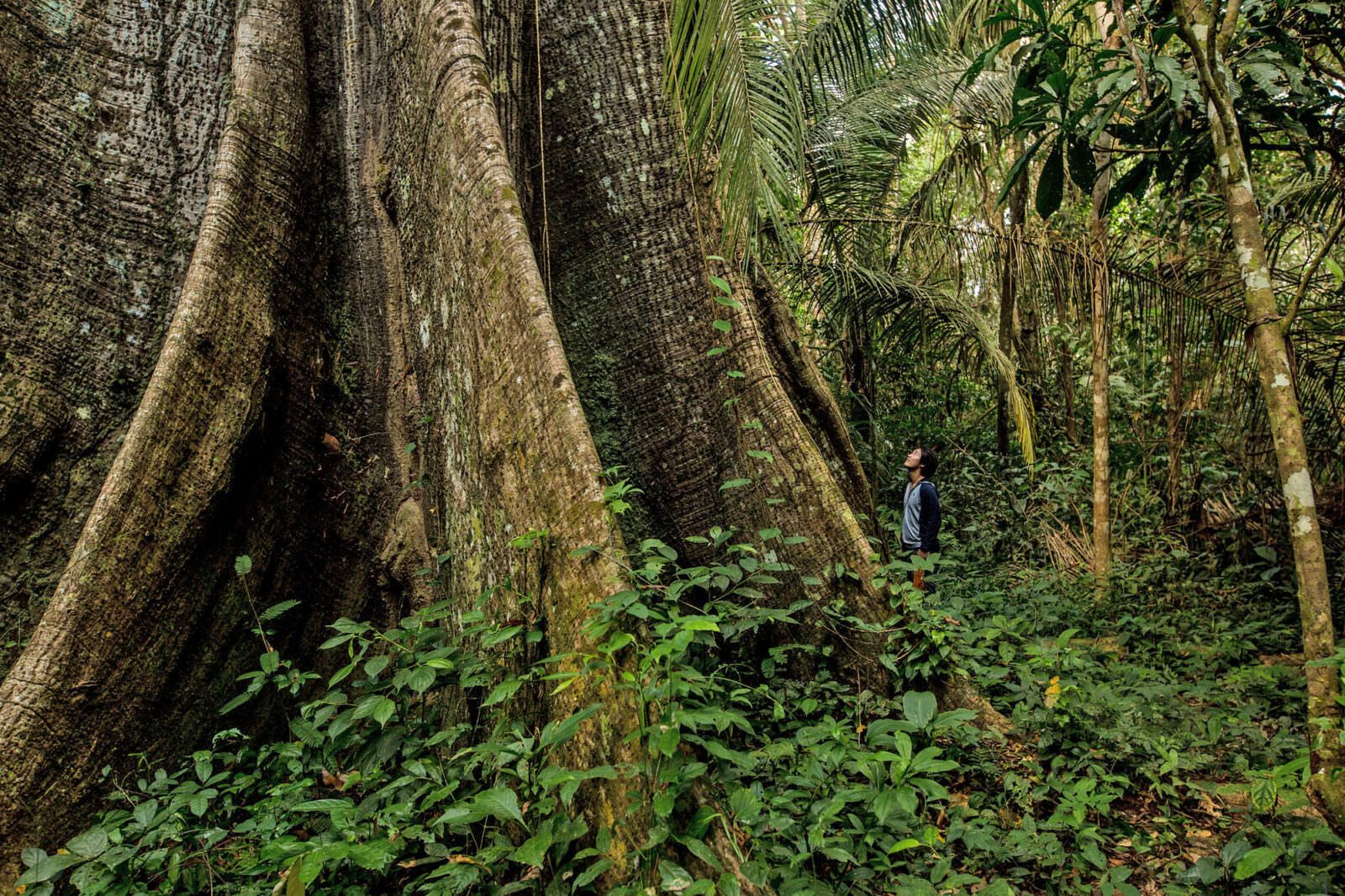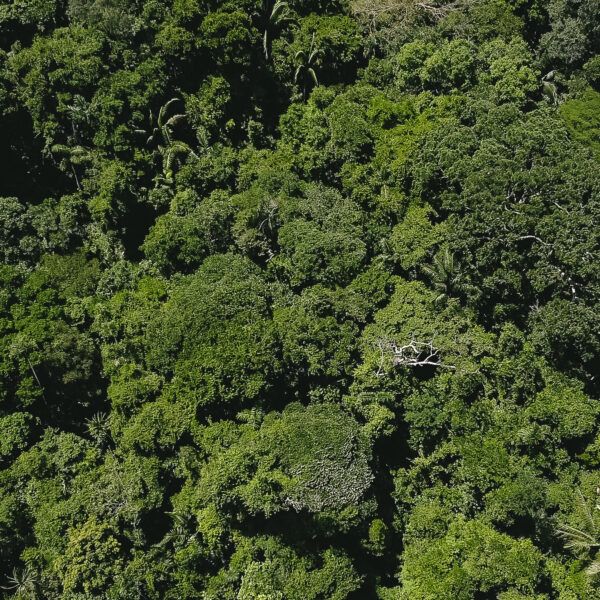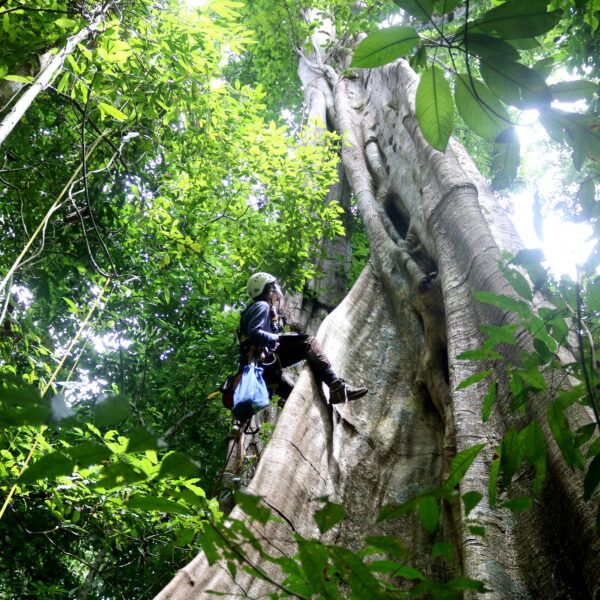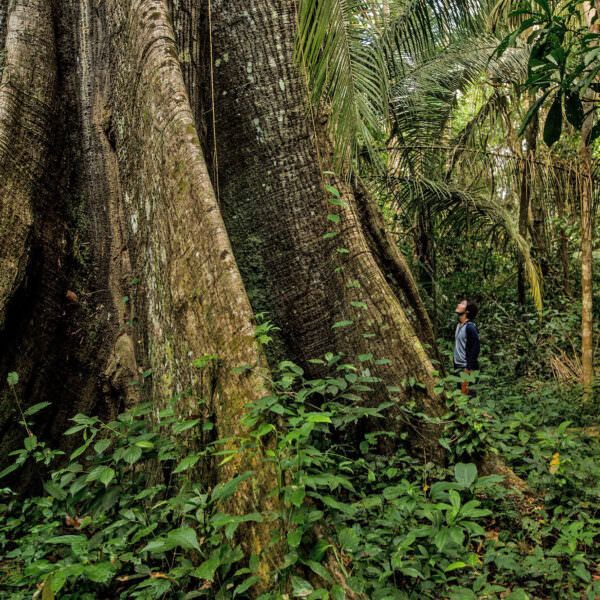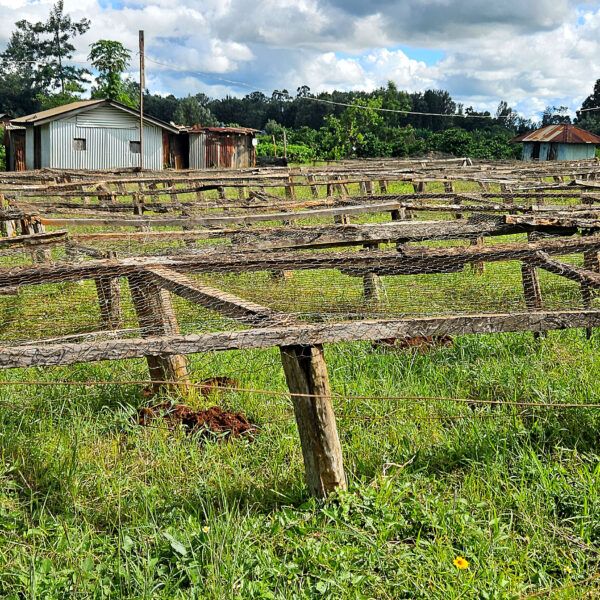Indigenous communities once lived in harmony with the forest in Madre de Dios, a region in the Andean Amazon that is known as the biodiversity capital of Peru. In recent decades, however, illegal loggers, irresponsible farmers, and gold miners have begun to raze large swaths of once-pristine rainforest in pursuit of short-term profit. Between 1999 and 2012 alone, mining in the Peruvian Amazon increased by 400 percent, resulting in rampant deforestation and the dumping of an estimated 3,000 tons of mercury into local waterways.
In order to conserve this precious landscape, the Rainforest Alliance worked with local communities, indigenous groups, and the government to develop an integrated and truly sustainable forest economy. We began with training and technical assistance programs to help local communities increase the value of their raw materials. The community of Tres Islas, for example, acquired a sawmill so it can transform sustainably harvested logs into floorboards that sell for more than raw timber. Tres Islas has also established a carpentry shop where members produce finished wood furniture.
The people of Tres Islas have always harvested Brazil nuts, which grow in the rainforest and cannot be grown on plantations. But instead of selling the closed pods in bulk, as they once did, they now shell and process the nuts to produce oil, confections, and other higher-value items to be sold under the brand OHEE, which was created by an association of local communities. Last year, Madre de Dios community enterprises exported more than 4,000 metric tons of shelled Brazil nuts, representing a value of nearly US$31 million.
In addition to these initiatives, the Rainforest Alliance has also supported local sustainable tourism businesses, as well as the harvesting of palm fruits used for skin and haircare products. With our support, the people of Madre de Dios have already accessed more than US$1.8 million in sales and financing, and they are sustainably managing more than 197,000 acres (80,000 hectares) of forest.
